The World Nomads Podcast: Argentina
How drinking mate defines Argentinians - How to kiss properly when you greet someone - and meet the scientist called Poppi who's saving the world's penguins.
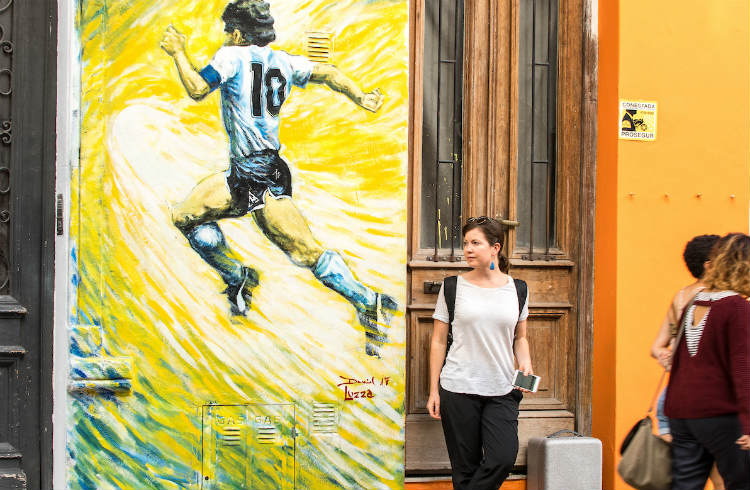 Photo © WorldNomads
Photo © WorldNomads
Listen Now
Episode 18 Argentina
The World Nomads Podcast investigates Argentina and gets the low down on the places to go from Buenos Aires locals.
What's in the Episode
00:12 - Welcome
01:03 – Quiz Question
01.20 – Martina Grossi gives us a lesson on Mate tea “… it is like the main thing that kind of unifies all Argentinians as a culture. Mate is the thing that has presents all our values of sharing and how important friends are in our lives.”
08.05 - Argentinian Andres Brenner was the 2013 Film Scholarship winner and shares some of his favorite places with World Nomads Ellen Hall.
15.48 Catching up with our World Nomads
17.00 Travel News
21.00 Argentinian marine biologist Dr.Pablo Garcia Borboroglu
30.00 Rafa Mayer founder of Say Hueque
34.40 Quiz Answer
35.30 What's next for the World Nomads Podcast
Who's on the Show?
Martina Grossi writes several of our World Nomads articles – and she’s a true nomad. Born in Buenos Aires, where she lived for 26 years before moving to Denmark and backpacking all over Europe, and currently lives in New Zealand. Martina talks about talks about Argentinian culture (what should travelers know/expect/eat/do).
Rafa Mayer is from Say Hueque, our partner for the Argentina travel writing scholarship. They’re organizing tours for the winners.
Resources & Links
Read Martina's guide to Buenos Aires at World Nomads.
See Andres Brenner's films in our Stories section.
Scholarships Newsletter: Sign up for scholarships news and see what opportunities are live here.
Follow World Nomads on Instagram for the latest stories, and #WorldNomads for your chance to be featured.
Want more personal, inspiring and engaging narratives that get to the heart of why we travel? Go to World Nomads' Stories collection.
Share Episodes with Your Audience
Want to share an episode you loved, or you were a guest? Do it with this Player Embed code.
<iframe width="100%" height="200" src="https://player.whooshkaa.com/player/episode/id/245095?visual=true&sharing=true" frameborder="0" style="width: 100%; height: 200px"></iframe>
Want to Talk to us?
We want to hear from you! If you have any travel insurance questions to Ask Phil, want to give us feedback on the episode, or have suggestions for topics you'd like us to cover, email us at podcast@worldnomads.com
Sign up for Podcast News
Explore your boundaries and discover your next adventure with The World Nomads Podcast. Hosted by Podcast Producer Kim Napier and World Nomads Phil Sylvester, each episode will take you around the world with insights into destinations from travelers and experts. They’ll share the latest in travel news, answer your travel questions and fill you in on what World Nomads is up to, including the latest scholarships and guides. The World Nomads Podcast is not your usual travel Podcast. It’s everything for the adventurous, independent traveler. Don’t miss out. Subscribe today.
Speaker 1: Welcome to the World Nomads Podcast, delivered by World Nomads, the travel lifestyle, and insurance brand. It's not your usual travel podcast, it's everything for the adventurous, independent traveler.
Kim: Hello again and welcome to this episode in which we head to Argentina.
Phil: Located nicely in the southern half of South America, it shares what is known as the southern cone with Chile to the west. And its bordered by Bolivia and Paraguay to the north and Brazil to the Northeast. And did you know Kim, it's the eighth largest country in the world?
Kim: Well I believe everything you say. You're a font of knowledge. So yes I do believe that. In this episode, we're going to speak with our 2013 travel film scholarship winner Andreas Brenner. He will share his favorite spots. We'll introduce you to the Global Penguins Society, in which, this is pretty cool, microdonations from World Nomads has helped fund. And Rafa Mayer, he's the founder of Say Hueque.
Phil: Say Hueque
Kim: That is the company hosting tours in Argentina and Chile, but there's plenty to come, we can't get started without your quiz question, Phil.
Phil: Well then, in honor of the World Cup which is being held in Russia, around about now. Argentina's one of the most successful futbol teams in the world. But when is the last time that they won the World Cup? The answer at the end of the podcast.
Kim: Phil, Martina writes several of our articles for World Nomads, and she's really true, not world nomads, she was born in...do we say Bo-nos or Buenos Aires, how would you pronounce it Tina?
Martina: So we say Buenos Aires.
Phil: So nothing that you said, Kim.
Kim: (Laughter) You lived there, then you moved to Denmark and you currently live in New Zealand. You're a true world nomad. But we want to have a chat to you about Argentina culture, what should travelers know, expect, eat, do and some of those hidden gems in, lemme get it, Buenos Aires?
Phil: Still didn't get it.
Martina: You're getting there.
Phil: You're getting there, yeah whatever[crosstalk 00:01:59]
Kim: Oh thank you, us Australians are a bit hopeless when it comes to sort of putting that little sexy twist on things. Go ahead, tell us all you know, spill the beans.
Martina: Right now I'm having mate, as I wrote in the article, is like the main thing that kind of unifies all Argentinians as a culture. Mate is the thing that has presents all our values of sharing and how important friends are in our lives. So mate basically is like a tea but instead of putting in a tea bag you put in herbs and then the water and then you sip through this aluminum straw. And foreigners always find it quite disgusting when they realize they need to share the same straw with these 10 Argentinian people. But this is how we do it.
Martina: When I wrote about social etiquette in Argentina I figured this was the main thing I wanted to talk about. Not to say that its only Argentinian. It's shared with some other countries in South America.
Phil: What other sorts of national characteristics can we expect?
Martina: So we are very intense in the way of saying, we're very warm, we're very candid people, we like hugging and kissing. And it's funny because I've been in New Zealand for almost four years and kiwi's here say, 'oh someone's suffering from pda," which is a public demonstration of affections. And that's sort of opposite to us. Whenever you arrive in a room, even if its full of people, you just kiss everyone and so saying hi and bye takes ages. But you have to kiss everyone once you arrive and then before you go, but we only kiss once, which I have so many funny stories.
Martina: When I was in Europe and I was trying to kiss my new friends on the cheek because we kiss on the right cheek and they were like "okay so this is unexpected." So they will try to kiss me on the other side because so many countries give two kisses.
Phil: Well this is true and I think sometimes there are some countries that have three as well. There's a whole kissing etiquette. We could do a whole episode about how many kisses you get.
Kim: And is it okay to kiss on the lips when you first meet someone?
Phil: Oh. Eww.
Martina: No.
Phil: No.
Kim: We're not talking about a pesh, just a peck.
Martina: Not really. You would do with some close members of your family or your friends, but no, it's not really.
Phil: That's just you Kim.
Kim: I was just checking.
Martina: I would just say that you get a lot of passion back, so you need to decide if you want to go for it or not.
Kim: We've spoken a little bit about the culture then. What are some places that we should think about visiting that are off the beaten path destinations?
Martina: I guess it depends on what your expectations are. If you're more into cities than culture, there's one city that's usually not the most well-known place to go but I love it. It's like a cultural hub in the country, which is Rosario. Many, many people kid of skip the city because people usually go to the Iguazu Falls, Buenos Aires and then by the ocean and the glaciers. They don't venture into the city of Rosario which is a gorgeous city, full of beautiful stunning amazing places. People is very nice and kind.
Martina: Then if you're more into more isolated places or you want off the beaten path, very unknown destination, you could for example head to Ushuaia. There are some places that are quite famous there, but in my article, I wrote about this place which is called Yavey or in Argentina we would say Shavey. Which is like this cute very small colonial town that belonged to the golden road, 500 years ago. This is like 350,000 meters high. It's an altitude town. The amazing thing about is, beyond the culture and the colonial constructions is that even though it's in a very arid place there's a river and its full of trees and it's like an oasis really.
Martina: So many places I can think of. One of my favorites is called [foreign languageinaudible 00:07:14] It used to be a lagoon a million years ago and now it's just this flat surface with 120 kilometers an hour winds. And people go there with their, it's called [foreign languageinaudible 00:07:30] which is.
Phil: Is that like land yachts? You've got a sail but you've got wheels, is it like that?
Martina: Yes. Like that.
Phil: A land yacht.
Martina: Yes that's one of my other favorite isolated places. I have so many. Oh my gosh. (Laughter)
Kim: I know you've written a lot of articles, we can share those now
Phil: Yep, we'll put some next to the articles. Fantastic Martina, thanks very much for talking to us.
Martina: Okay, thank you
Phil: Andy Braemer as we call him was the 2013 winner of the World Nomad's Travel Film Scholarship. His travels have taken him far and wide from living with tribes in Sumatra and the Mentawai Islands to hiking up to 5,400 meters in the Na poli Himalayan.
Kim: Well World Nomads editorial producer, Ellen Hole has caught up with Andy on her recent visit to Argentina as part of the World's Nomad Writing Scholarship.
Ellen: So I am here Andy Brenner and he is our, I'm going to let you introduce yourself. So-
Andy: And Hello Ellen, I am Andy Brenner. I'm 33 years old. I'm from Argentina. I'm a filmmaker and traveler. So basically what I do is, I travel around the world and I try to look for interesting stories to share with people. Just travel, find stories, film and then share them with people, mostly through World Nomads.
Ellen: Actually you were one of our Film scholarship winners, correct? What year was that?
Andy: Yeah, it was in 2013. I applied for the travel filmmaking scholarship. I won, so I went to Mardi Gras, to New Orleans with Brian Rapsidy. It was amazing. It was like a big push for me, the World Nomads, for making scholarship and since then I have been working with World Nomads. Right now I'm shooting [inaudible 00:09:27] about cultures around the world. So basically what I do is, I travel to different countries, I look for stories there. I film these stories and then when I come back to Argentina I edit them and then World Nomads share those stories on line.
Ellen: So, you are from Buenos Ares, so you were born here? Is that right?
Andy: Yeah, I am from Buenos Ares. I was born here in Palermo where we are right now. It's a nice neighborhood. Actually, when I was born here, long time ago, it was not, it has always like a beautiful neighborhood, but it was not as touristy and fancy as it is right now. So right now I don't live in Palermo anymore. I live more far away. But I do have Palermo in my heart, you know? Like I used to be, what today is Palermo's zoocalo, there used to be nothing here, just houses. So most of the shops and restaurants and bars that we see today in Palermo zoocalo, some years ago when I was a kid, there was nothing, only houses. Actually one of my good friends' house, right now is a restaurant here around the corner. So and I was telling him the other day, that this square here, which is like the main area of Palermo zoocalo is a [inaudible 00:10:58]
Ellen: Yeah
Andy: [inaudible 00:10:59] square, that one when I was 15 years old, we used to come here and there was nothing. We used to come here with a tire, to play tire and knights, to have a drink. But, it was, everything brought by us. There were no bars, nothing.
Ellen: Wow, cause it is really hopping now, totally different.
Andy: Now that was the place to be, now if you go out in Buenos Aires at night, you want to have a drink, or you want to eat something, not everything, but many things happen in Palermo zoocalo.
Ellen: Yeah, we've been having a great time here. But, there's lots and lots of great neighborhoods in Buenos Aires. Where would you suggest that visitors come if they only have a few days, where can they come and get a really authentic Buenos Aires experience?
Andy: I think San Termo is important to go to San Termo. It's very nice, it's where you can find more of the traditional culture of Buenos Aires. Like the [inaudible 00:11:54] Also for food, there are some street markets during the weekends. That's an interesting place to get to know you, it's like a must, you know? And then other neighborhoods of the city of course Palermo. And then if you have one spare day, one extra day, I would really, to recommend to go to Tigra, it's a city like an hour ride in a train. And then there you can take a boat, and you can get to visit the thousands of islands that we have here. It's a, we have a big river coming down from Brazil and there's a big delta. This delta finishes in the Rio de la Plata, between like the delta, the delta is formed by thousands of islands. There is people living there, like locals, it's very interesting. It's like a completely different experience, but still close to the city. So you can do it in a day tour and it's very nice. I think Argentina, it's a very interesting country. It is so big that depending on where you go, you get to see so many different things. For example, when you travel to the North of Argentina, the culture is completely different. It feels like, for people who is not from here, from Argentina, maybe they can feel like a different county, because food is different. The people is very nice, I think people is very nice all around the country, but you see a difference. You see a difference. The north I love the patalone, patalone is amazing. Also, that Patagonia for me, I think it's more about the landscapes. In the north you get landscapes and you get also the culture and the people.
Ellen: I don't want to take to much more of your time, but do you have any other, about culturally that you think people should know before they travel here?
Andy: I think people is, people here is very open. Buenos Aires is a very cosmopolitan city. There are many people who speak English, so it shouldn't be too difficult to travel to Buenos Aires. I can recommend for people who love food, to go out. There is kind of two different scenes. There is the typical fancy restaurants, especially in Palermo. It's what we call the Palermo Hollywood style of restaurants. And then you have the traditional restaurants, which we call Bolivones. I would definitely recommend travelers to go and try one, two, or three San Bolivones. The Bolivones, they are like old buildings, traditional restaurants, maybe they have been there for 50 years or 60, I don't know. You went to a Bolivone and you will feel like the walls, they speak. Usually, they have pictures, articles from the newspapers, t-shirts from futbol players that are friends of the owners of the restaurants. They will hang the, it's like a living museum, you know?
Ellen: Well, awesome, this is wonderful.
Kim: Yeah, you certainly painted a wonderful picture. And great work Ellen catching up on the streets in the Palermo Zoocolo neighborhood in Buenos Aires.
Phil: Yeah it sounded great.
Kim: Yeah, we should be doing more of that too on the road, I reckon.
Phil: Well, I doubt that traffic into the [inaudible 00:15:23] studio is. (Laughter)
Kim: Yeah something like that. Now Ellen is not the only member of the team on tour. Sebastian, who you would have heard on previous episodes is in South America. He's been catching up with our World Nomads, and this time he is with local Gabrielle in Le Paz, Bolivia where she's just returned from 7 years of traveling. Seven years,
Phil: Seven years?
Kim: Yup, but where from? (Music)
Gabrielle: Well, the last place that I was, it was New York. It's an amazing city. It's so energetic, multi cultural. Next place that I would like to go is Asia. I have to admit, if I can choose any place to go it would be Asia and Viet Nam.
Speaker 2: What would you say is the best thing about travel?
Gabrielle: For me was that every single time that I went to a new place, you get to be a new person. You get to try to do maybe do something that you didn't do before.
Speaker 2: Apart from Viet Nam, where would you like to go?
Gabrielle: I think it would be Laos. I like it because I like the innocence of Asia. Has, I absolutely fell in love with Asia, seven years ago.
Speaker 2: And what advice would you give to your younger self?
Gabrielle: Well, at the moment I would say that I am really lucky of the things that I have experienced so far. So enjoy every day as if it would be the last one.
Kim: Thanks [inaudible 00:16:51] pretty sure though that it's time for you to head back to our headquarters here in Sydney. Phil, what do you reckon?
Phil: Yeah, that's too much fun to come back by.
Kim: Yeah, exactly, alright what's travel news?
Phil: Okay, Egypt has passed a law that if implemented, will fine vendors from harassing tourists at historical sites. The government says their harassment has put visitors of from coming to Egypt. I think there might be a few other factors. And therefore it affects national income and the countries image. One tourist interviewed about the law said that "Tourists have the right just to enjoy historical sites, without being obliged to buy something from local sales."
Kim: But really do they?
Phil: I'm interested to know. What do you think? Is that sort of harassment too much? Should we ask for some e-mails for that one? Podcast@WOrldNomads.com - Do you think banning, you know harassing tourists is a good idea or is that just part of the privilege of where you're going? You should, maybe just help out the local community a bit.
Kim: Good question.
Phil: The crack down on over tourism continues with a political party hoping to take control of the city council of Amsterdam. And they've announced that they will ban fun rides if elected. Which means no more boozy boat cruises on the canals, or beer bike rides. It getting a bit out of control. Their talking about banning segue tours as well and I know they've already cracked down on [inaudible 00:18:10] pizza parlors and what have you. They coalition of parties wants to halt the Disney fication of Amsterdam and return a balance between tourism and the people who actually do live there.
Kim: There has to be a balance.
Phil: There has to be, I love Amsterdam. Not for the obvious reasons.
Kim What are the obvious reasons?
Phil: The coffee shops and the red light district.
Kim: (Laughter)
Phil: But the whole, the point is, they sort of attract a particular type of person. You go there to have a full on party there.
Kim: Yeah
Phil: And, I love, if you can get away from that red light district if you get away from the Cannabis shops. I think Amsterdam fantastic. It's a really great place. I really love living there.
Kim: My son went there and something happened with a woman and a banana.
Phil: (Laughter) Okay! Learning Planet has announced it's Best in Europe for 2018. This is the kind of places, you know speaking of over tourism, are more undiscovered. Places you should go because they're not as overcrowded. Amelia Romana in Italy will be talking about Bologna, home of where Prosciutto comes from.
Kim: Nice
Phil: Bolognese sauce. Cantabria in Spain, Freeseland in the Netherlands, which is up in the North, I think? Yeah, it's quite, in Dutch terms it's quite remote.
Kim: Remote, yeah
Phil: Yeah, but it's very nice. Kosovo, I'm not sure about that one. It's a bit difficult as far as crossing the border to get into Kosovo because it's not recognized as being independent by they Soviets. So it's
Kim: Okay, political
Phil: So we've got something on the World Nomads travel safety about Kosovo. If you're going to go there, look it up. If you're going to go there, look it up and make sure you don't get into trouble with your visas or what have you. Provance in France, or Provance in France, I'm never sure which one it is. (Laughter) Dundee in Scotland, as Glasgow or Edinburgh I suppose. The small Cyclades islands in Greece, Villinis in Lithuania. I haven't been to Villinis. I've wanted to go. I had a friend a while back when I lived in Albany who was a Lithuanian girl. I've seen pictures of it and Villinis looks fantastic.
Kim: Beautiful
Phil: Slavonia, yeah, one of the undiscovered gems of Eastern Europe and Tirana the capital of Albania. Did we not speak to Kristina Tunner about their trip to Albania on the show?
Kim: I think that was very early on
Phil: Very early on but we should get her back.
Kim: And also
Phil: She was ahead of the curve on Learning Planet.
Kim: Thanks for that Phil. It was awesome as always.
Phil: (Laughter)
Kim: Now thanks to micro donations for our Travelers. I do mean that.
Phil: (Laughter)
Kim: We're proud to be able to support projects like the one that you are about to hear.
Phil: The Global Penguin Society was founded to protect and maintain a colony of Metalenic penguins near the popular Patagonia beach town of Puerto Madrid. Well, it's time to speak to founder Argentinian marine biologist Dr. Pablo[inaudible 00:21:13] who's recently been named the winner (Laughter) she's trying to trip me up.
Kim: No, you're doing well with the pronunciations.
Phil: He's recently been named the winner of the 2018 Gold Award from the Whitley Fund for Nature. An award so prestigious amongst conservationists that they call it the green Oscar.
Dr. Pablo: I'm a researcher. I work for the National Research Council here in Argentina, but then like 15 years ago, I realized that there was a need to do something else with the science that was available. SO I founded the Global Penguin Society which is an international organization that promotes basically the conservation about the penguin species and their habitats on land and also in the ocean. So, I kind of have a life as a researcher and another life as a conservationist. What we do basically is we work on science management and education. We gather science that is useful to guide conservation action and also create protected areas on land and in the ocean. Also, we work with the communities and also with kids there locally and also globally.
Speaker 3: So what species do you, are you particularly interested in protecting? Or is it species across the globe?
Dr. Pablo: Yeah, it's all species, because I mean it depends on the year. Like right now, the second, this very moment we have scientific field work in New Zealand, in the west coast of New Zealand, in Chile, in Argentina. Then we also support actions in South Africa and in Galapagos Islands. But then we talk about policy, international policy, we do things that benefit all of the penguins. Like right now we're going to study the illegal traffic of penguins in all the world. So that is going to benefit all the species, you know. When we deal with international waters, and illegal fishing, fisheries, or fisheries in Antarctica. So we kind of benefit all penguin species.
Speaker 4: Hang on a minute. Illegal trading penguins? What? People take them as pets? Or what happens?
Dr. Pablo: Yeah, it's crazy, you know like for a while we have been receiving the [inaudible 00:23:35] for different places, and crazy things. Like for example, we received an [inaudible 00:23:43] that they were stealing African penguins from Ni bean Islands with helicopters or like there's a Chinese boat off the coast of Nibevia, capturing penguins. Then in southern Chile also, they were offering 200, they were buying King Penguins for 200 bucks. That happened like 10 years from now.
Speaker 4: And what do they do with them? Why are they capturing them?
Dr. Pablo: Yeah, you know, most of, it goes to Asia. Most, basically, we know that they go to private collections. It can be private houses, like rich people that they have everything that they can have, but they want something that can be very exclusive. So like a penguin in your swimming pool, they crazy! But at the same time, with the improvement of Asian economies, there are local aquariums that are opening. They are demanding, and they are tempting developing countries with a lot of money to get penguins not always in the correct way. So this is what we want to find out, the magnitude, the nature, what countries are involved? And also, since we created also like a policy arm for our penguin work, we created the IUCM Penguin Specialties group, it belongs to United Nations. So when we identify problems, international problems, they go talk directly with the government of those countries.
Speaker 4: Is it something that we can do as travelers? Is it some sort of certification that you might find on an aquarium where we know "Yeah, that the penguins have been responsibly sourced?" How can you tell, or should you go to an aquarium is a big question? But how can we tell and what can do to help stamp this out?
Dr. Pablo: Yeah, in the world, there are similar organization, like associations of zoos and aquariums. Some zoos are accredited, so they really fit the standards. But that is basically the United States and Europe, not all over the planet, only there. So when you go to other countries, like here in South America where I am now, that certification process doesn't exist. People don't even know about that, or in Africa, or in Asia. But, it's really important what you say because the critical things that we don't need to [inaudible 00:26:10] or harm an animal. But so far, people don't know yet, and those organizations that don't show exactly where are those animals coming from? I heard that there are problems in the United Arabian Emirates. You say that in English right?
Speaker 4 Same, same
Dr. Pablo: So I went there, and I couldn't explain the origin of the penguins they have. Because they kind of, for example, to give you an example, the penguins that they breed here where I am now, Magellanic penguins when the winter comes they go to the north. They go Paraguay and Brazil. They go to other countries. So some of them they get sick, or oil and then they go to the coast and they get[inaudible 00:26:58]. So they spend there a couple of months. And Japan and China they have been tempting these rehabilitation centers with money so they can buy those penguins when they are out of rehabilitation. They kind of invent, they say "Oh the penguins can not be released back out in the wild." So they cheat the system. And the more we look for information, the more [inaudible 00:27:22]. Like I met a guy, who was a pilot and he was a pilot of a plane that was taking penguins to Asia. SO, I mean, I want to use the money that I receive with this award to find out how big is the problem.
Speaker 3: What if you're touring Argentina, or you're visiting Argentina, is there any way that you can support your project? Visit the penguins?
Dr. Pablo: So we work in different, in different colonies here in Argentina, but we film in one location that is very special for us and also for visitors. This is a colony that we discovered in 2008. There were six penguins, six pairs, there were six pairs of penguins. But it was, the place was a mess. There were reckless people, and careless fisherman that they would throw, they were throwing garbage and setting the bushes where the penguins were nesting on fire. They were taking pets that were harming the penguins. And the penguins when they establish a new colony, most of them are really, they're young individuals. So they're prospecting and if they don't like the place they will never come back. So we saw the need to really do something, so we closed the gate because we needed to do something immediately. There were no legal tools to be implemented to protect the colony immediately. So we closed the gate and then we had many issues. The fisherman were coming with glue and they put the glue on the lockers of the gates so we couldn't go in. And they were coming with guns and many other issues, but the good news is that they[inaudible 00:29:07] the penguins started to like the place, and now, remember there were six?
Dr. Pablo: And now there are almost 1,800 pairs. And then we also helped the owners to develop an eco-touristic operation, so people can go there. Like visitors that can go there, they can stay because it's a very nice house where you can stay. It's a very small scale operation because there's a small colony. And people go there, they contribute with the tourists, that ecotourist activity gave jobs to almost 10, local people. People are enjoying, local people have jobs and penguins are really happy.
Speaker 3: Keep up the great work Poppy!
Dr. Pablo: Okay thank you, thank you very much! And I'm really looking forward to continuing collaborating with World Nomads because this is a great partnership.
Kim: Thanks to Poppy or Pablo's work in [inaudible 00:30:03] Now Ramayana is the founder of Sahikway. It's a company hosting tours in Argentina and Chile and Ellen from World Nomads caught up with Rafa in Argentina to pick his brains on some of the places to visit, including his favorites.
Rafa: My favorite place on earth is Patagonia. My heart is there. I really enjoy Southern Patagonia. Southern Patagonia is basically the glacier area [inaudible 00:30:28] but it's also a place that is like 3 hours north from there that is called [inaudible 00:30:36] and it's a great place for tracking. It's a tracking paradise. It's where they fix royal mounties and it's amazing for tracking. It's one of the places I really recommend for everybody loving outdoors. I also enjoy the Southern most city in the world. It's a really special place which you actually feel that you are at the end of the world. So those are really special places. Patagonia would be my first choice visiting Argentina because when you are in Patagonia you kind of feel like you are in a different place. I mean everything is so huge and so intense and so dramatic. It's a kind of beauty that I enjoy very much.
Ellen: Yeah, I was in [inaudible 00:31:22]myself but haven't been to Patagonia yet, or the Calafonte area, gotta go.
Rafa: Next time
Ellen: Yes, next time, I know. So are there any destinations that are kind of emerging that people may never heard of, that you want to, like to tell people about?
Rafa: Yes, the north of Argentina and the northwest of Argentina was kind of not so much explored. It's becoming much more well known now. Now is the Salta area. That is northwest of Argentina in the limit of Chile and south of Bolivia. That's maybe the most Undian area that we have. The Undian culture there is much more, is really, really in every single detail. So the Undian culture is very strong. The landscape is beautiful, great wines, people are the best. It's an [inaudible 00:32:27] to receive tourists and travelers that are waiting for something really authentic. The [inaudible 00:32:34] great quality of small and charming hotels, and beautiful small and charming restaurants as well. SO it's kind of that kind of place which that has a lot of magic.
Ellen: How bout wild life? I mean I know that compared to say the Amazon, it is not as much known for wildlife, but where do you recommend that people who want to see wildlife should go?
Rafa: So basically I would say that the most, the two most unique places for seeing wildlife would be, on the one hand, if we are talking about water wildlife, we can talk about the Patagonia Atlantic Patagonia. There is a peninsula around his, and where you can find enough whales and sea lions and orcas and penguins, everybody loves penguins, so it's a really
Ellen: It's true
Rafa: Yeah, they are so cute. There are a lot of water wildlife there, aquatic wildlife, so it's really, really beautiful place to be in touch with the wildlife in their environment.
Ellen: I wanted to see if there is anything that you think that people just shouldn't miss when they come here?
Rafa: If you are, if you like meat. That's really something that you will enjoy around here. As well if you like wine (laughter)
Ellen: Oh yeah
Rafa: I think that you can not miss, you can leave Buenos Aires without having a kind of experience, any kind of experience with tango. As much in [inaudible 00:34:08]season, the experience is much better
Ellen: Cool
Rafa: And of course, talk to people. I think here in Argentina, we are very open and we like speaking with foreigners and people that are visiting us. So don't miss the chance to open to that, because I think it's a good reward.
Kim: [inaudible 00:34:29] to Siniquey in ShowNotes and well done Ellen, she's almost our [inaudible 00:34:35]reporter.
Phil: That's it, roving reporter.
Kim: Phil we've hit the end of our episode on Argentina so let's wrap up with you Quiz Notes answer.
Phil: SO let's just remember in honor of the World Cup being held in Russia. Argentina is one of the most successful futbol teams in the world, but when was the last time they won the world cup? 1986, although you may have said 2014, they were runner's up, they were in the final then. They've been runners-up three times. 1930, 1990 and 2014. But they've won it twice, 1978 and 1986.
Kim: Argentinians take their futbol very seriously.
Phil: Yeah, let's see how they go this time around?
Kim: Well thanks for listening to our podcast on Argentina. You can subscribe [inaudible 00:35:16]on iTunes, Google Play, Stitcher and I Heart Radio. Contact us too by e-mailing podcast@WorldNomad.com. And our next destination in a fortnight will be Finland. But Phil, next week we launch something very special. [inaudible 00:35:30]episodes.
Phil: Yes, don't go anywhere, don't go anywhere everybody. I've got to tell you that we love delivering our fortnightly World Nomads destination based podcasts, but while there are so many great destinations in the world, there are equally some amazing people doing amazing things in it. So each fortnight we are going to bring you an extended interview with an amazing World Nomad as part of this episode. So we're kicking off with an Australian, Sarah Davis, and she's preparing to be the first woman to paddle the length of the Nile.
Kim: Cool, look out for that next week! Bye!
Phil: Bye!
Speaker 1: The World Nomads Podcast, explore your boundaries.
Related articles
Simple and flexible travel insurance
You can buy at home or while traveling, and claim online from anywhere in the world. With 150+ adventure activities covered and 24/7 emergency assistance.
Get a quote



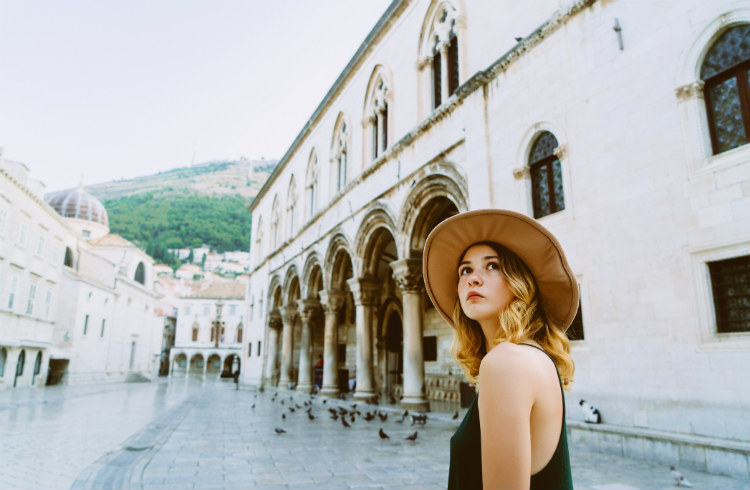
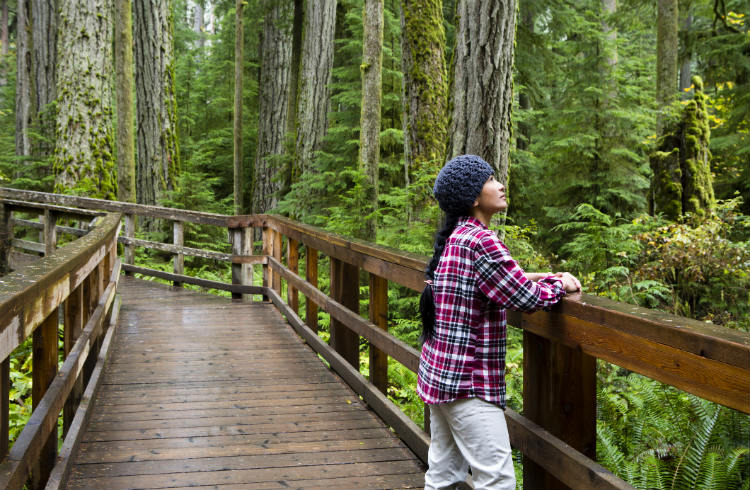
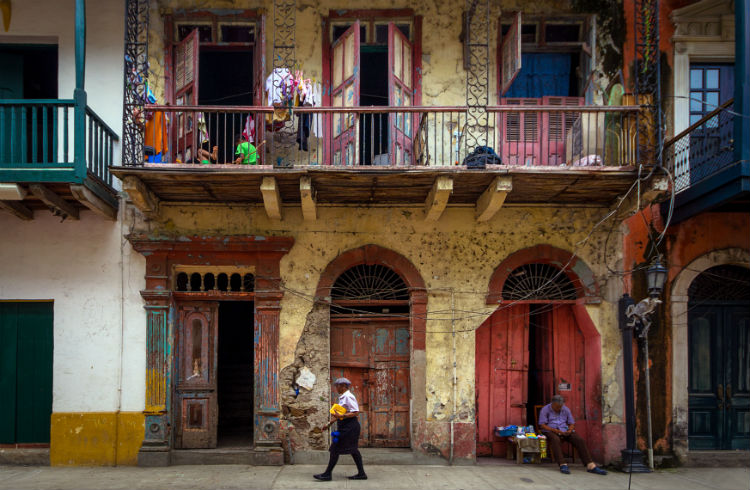
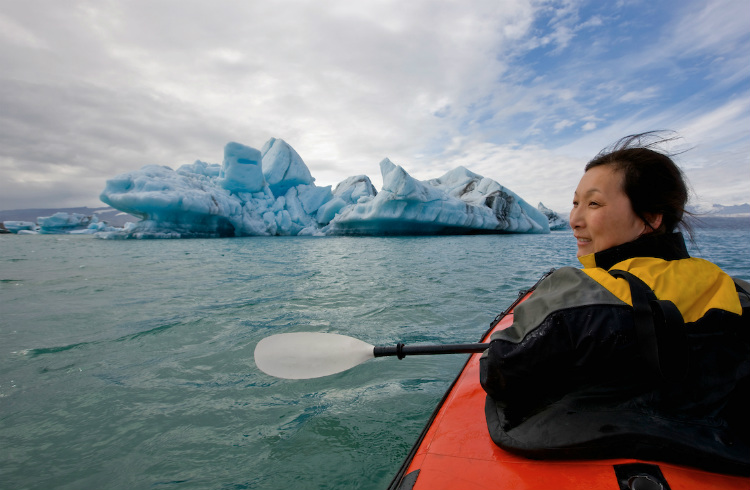
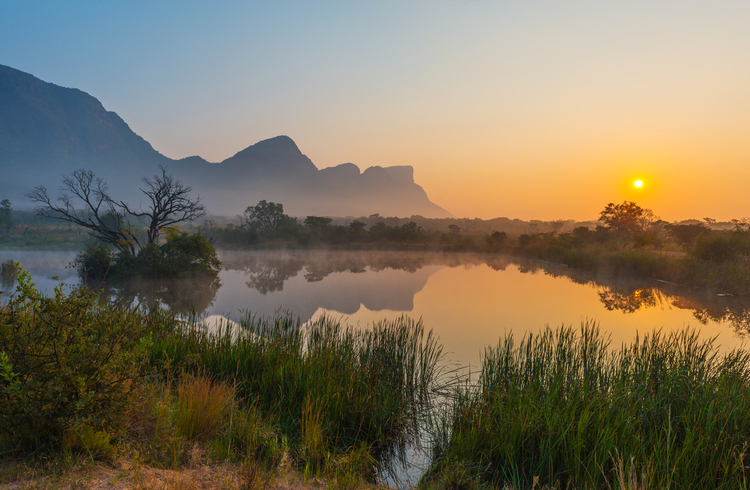
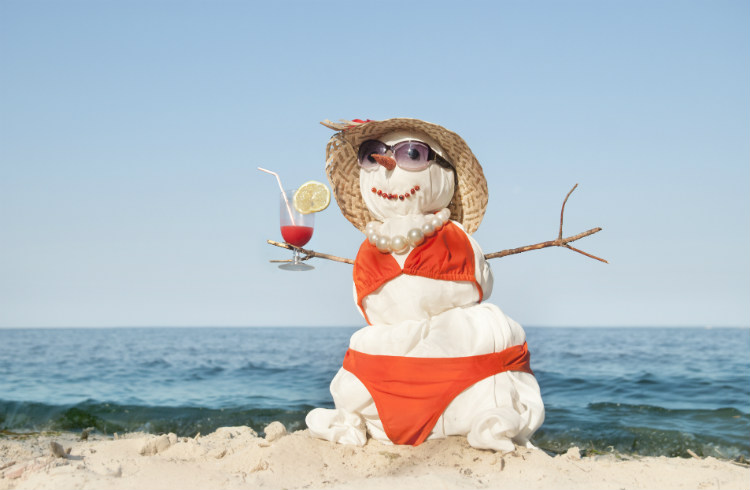
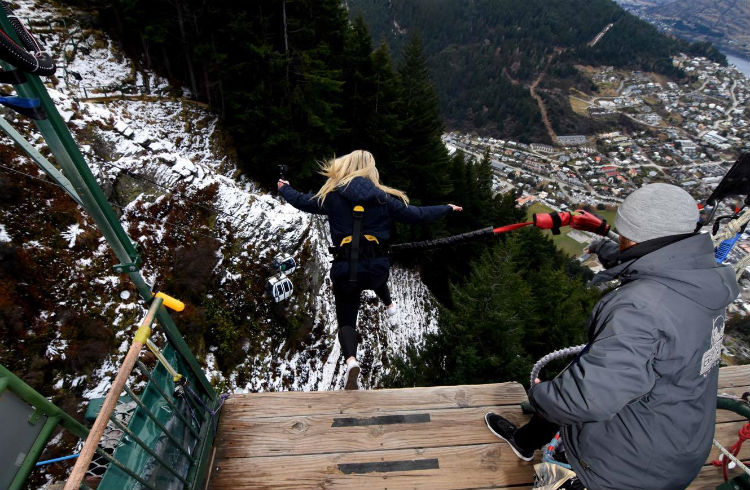
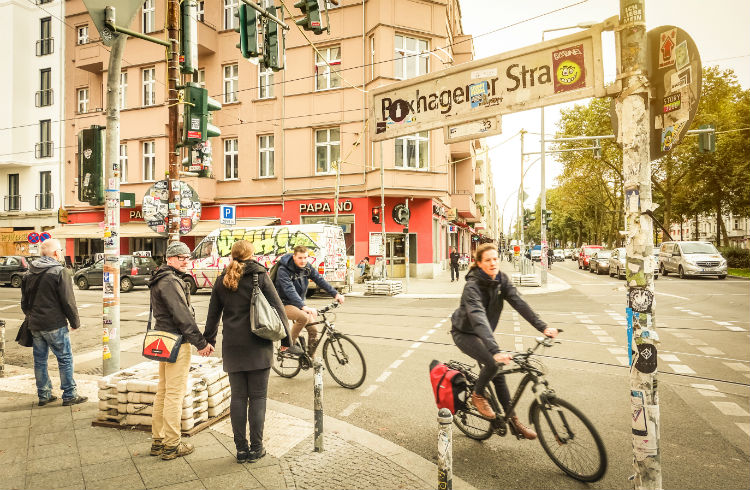
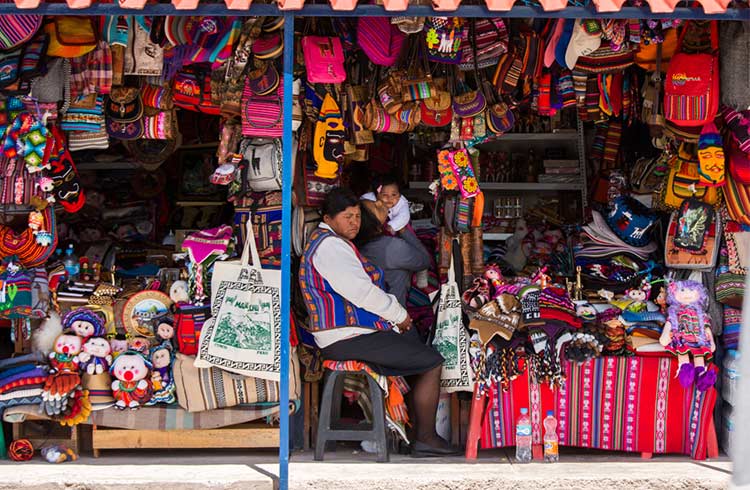
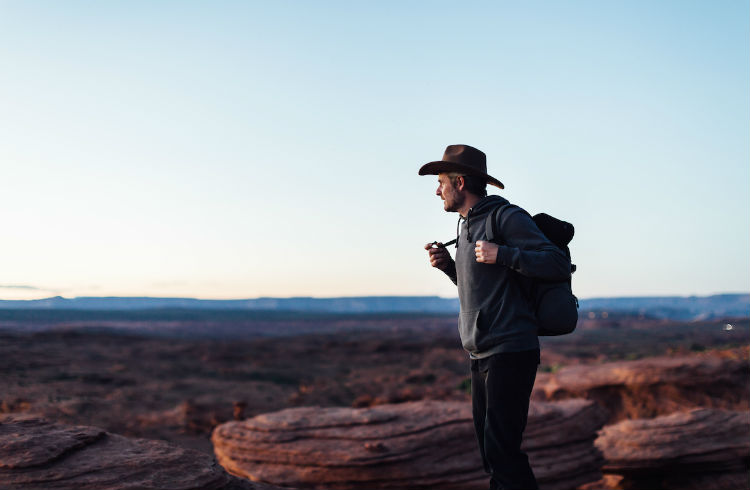

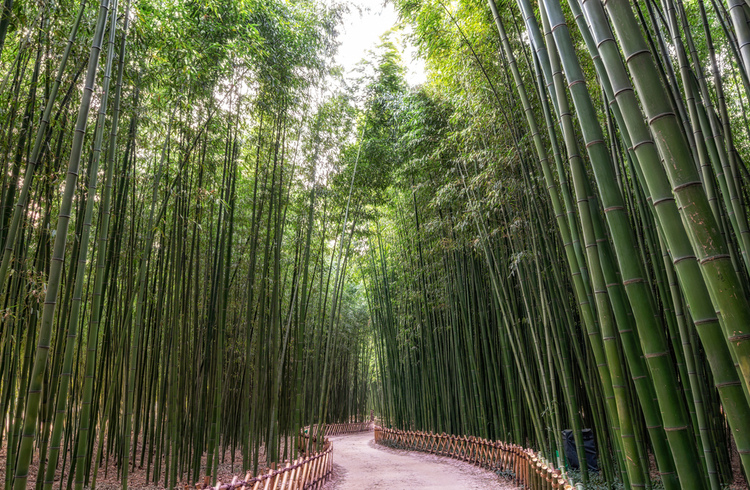
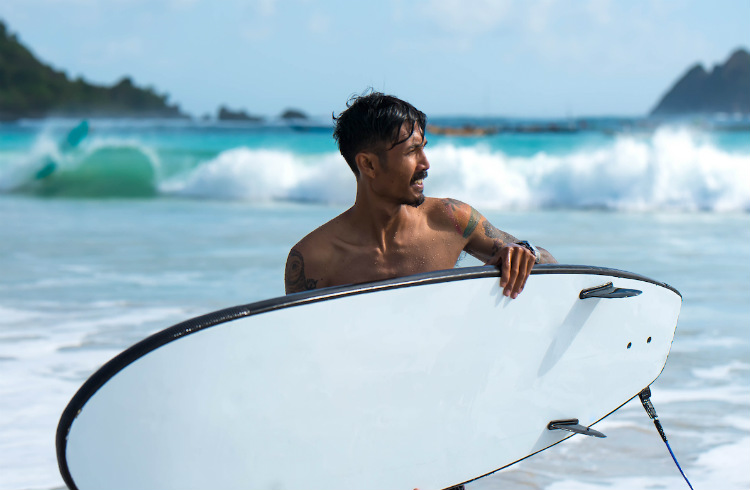
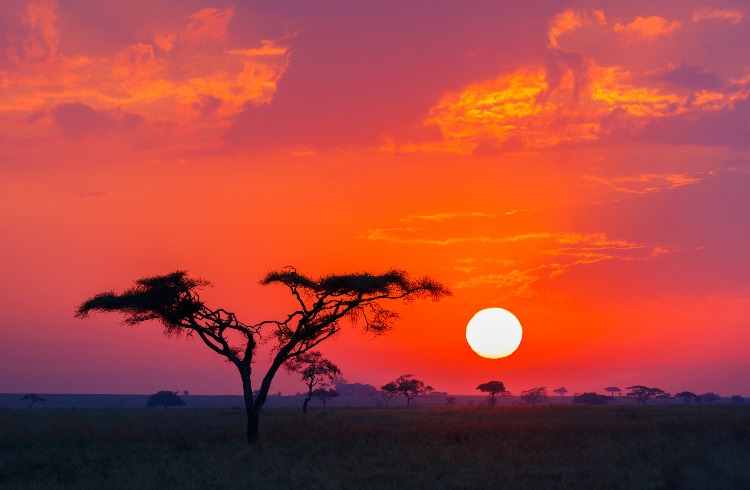
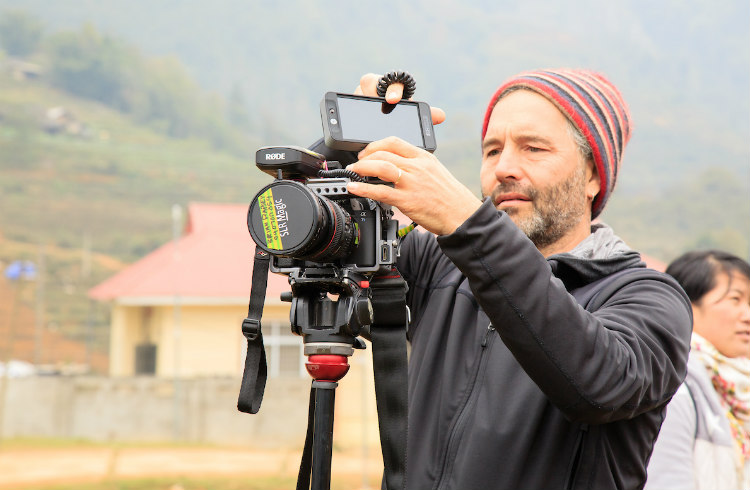
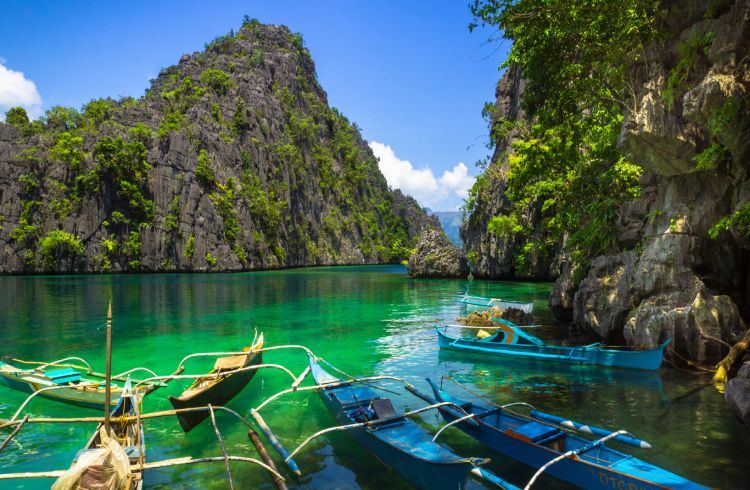
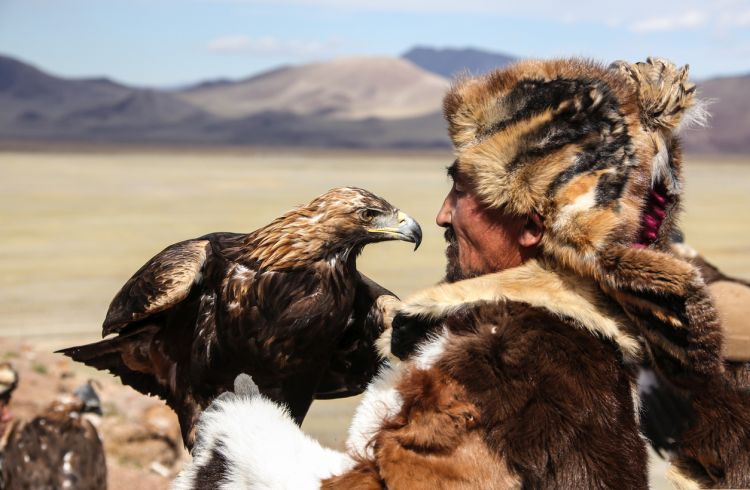
No Comments